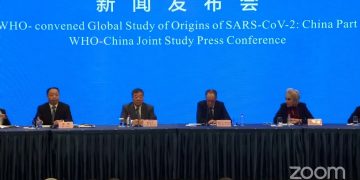China is allowing foreigners to enter the country easily. However, it is imperative for them to receive a Covid-19 vaccine made in China to do so. Fresh visa policies have been issued by 23 Chinese embassies across the globe recently with this particular condition including the US and the UK where China’s vaccines are not available. According to the Chinese Foreign Ministry, this move is regarding kick-starting global travel in an organized manner, and vaccinated travelers are going to nevertheless face quarantine run by the state on arrival.
However, concerns have been raised by experts over the decision of China to give priority to domestic vaccines than those which have been endorsed by the WHO with a higher rate of efficacy.
According to them, it will force the nations to approve vaccines made in China which sets a hazardous precedent that might leave the planet in vaccine-based silos in case it is adopted by other countries. It likewise raises practical problems – what alternatives do individuals have in case they reside in countries which have not endorsed vaccines made in China?
According to Nicholas Thomas, a professor at the Hong Kong City University, it is essentially asserting that in case you’d like to visit China, you have to take the Chinese vaccine.
What exactly is behind this move?
The timing of the fresh visa regulations of China is notable. After the meeting of the Quad (a partnership between India, Australia, the US, and Japan) only recently, Joe Biden, the president of the US, declared that they would be financing, manufacturing, and distributing a minimum of 1 billion vaccines together by the conclusion of 2022 for the Indo-Pacific.
These vaccines are going to be manufactured in India after being developed in the US. According to some individuals, this is a direct counter to the vaccine diplomacy endeavor of China which was criticized by Antony Blinken, the US Secretary of State, asserting that Chinese vaccines are available with “strings attached”.
China is considered to be amongst the several nations that are trying to develop vaccines and has exported vaccines to as many as 28 countries as of March 15. 65 million individuals have received vaccines in China alone with the nation’s 5 accepted domestically manufactured vaccines. However, the WHO has not yet approved any of the Chinese vaccines which has resulted in a dilemma regarding the efficiency of the vaccines. According to the available info, the vaccines manufactured in China might be effective as compared to other vaccines – for example, Sinovac featured a 50.38% efficacy rate in Brazil which was lower than that declared in China.
According to Sarah Chan, a reader at the College of Medicine in Edinburgh, in case somebody has to travel to China for maintaining his livelihood, they might be forced to receive the vaccines in spite of their lack of information. As per Scott Rosenstein, who happens to be the director of the Eurasia Group global health program, it might likewise force the nations to endorse the Chinese vaccines. Some folks might be suffering from health conditions which might prevent them from taking certain shots.
In spite of the fresh visa rules of China which places an incentive on tourists to receive the vaccines made in China, the concept of “vaccine nationalism” was rejected by Zhao Lijian who happens to be the Chinese Ministry of Foreign Affairs spokesperson.
What are the effects for the longer term?
This move of China comes as nations across the globe tackle the question of rolling out “immunity passports” for encouraging international travel to folks having antibodies to coronavirus since they have either recovered from it or they have received a vaccine. However, the gives rise to more queries – which vaccines are going to be counted in case special rights are given to individuals by an immunity passport that has received vaccination? The authorization made by WHO will be one of the options to follow. Presently, WHO has given emergency use listing to just 4 vaccines, and none of them have been manufactured in China.
However, it is still a long way to go for obtaining a universal vaccine passport. Right now, countries will probably just recognize the vaccines which have been approved for usage and already there have been indications of that resulting in silos.
A Digital Green Certificate along with a QR code had been announced by the European Commission recently to depict whether an individual has received the vaccine. Nevertheless, free movement restrictions will be waived by the member states for individuals vaccinated with shots which have obtained EU marketing approval. Folks might also opt to receive several vaccines in order to travel to other locations which will probably not result in negative health effects but might stress the supply of vaccines.
What will be the best approach?
There are other problems with immunity passports apart from the issues of figuring out which particular vaccines will be accepted – we have no idea regarding how long the immunity to Covid-19 is going to last, from vaccines or from recuperating from the virus. There are likewise moral issues – although the WHO has been dealing with a “smart digital certificate” which would include information regarding vaccination, it is going to discourage the usage of vaccine passports intended for travel.
A number of issues are seen by Chan regarding immunity passports, particularly high-tech digital immunity passports which are associated with data privacy issues. She likewise mentions that once every person has had an opportunity to receive the vaccine, vaccine passports are going to become obsolete very fast implying that cash might be spent elsewhere in a better way.
She also added that it would be better the make certain that vaccines are available as widely as possible. In that case, simpler approaches can be used by immigration authorities when the majority of the population of the world has been vaccinated, such as requesting the public to report on their own if they have received any vaccine. In case some people did not tell the truth, there would be less risk to the population in general since most individuals had already been vaccinated.






















